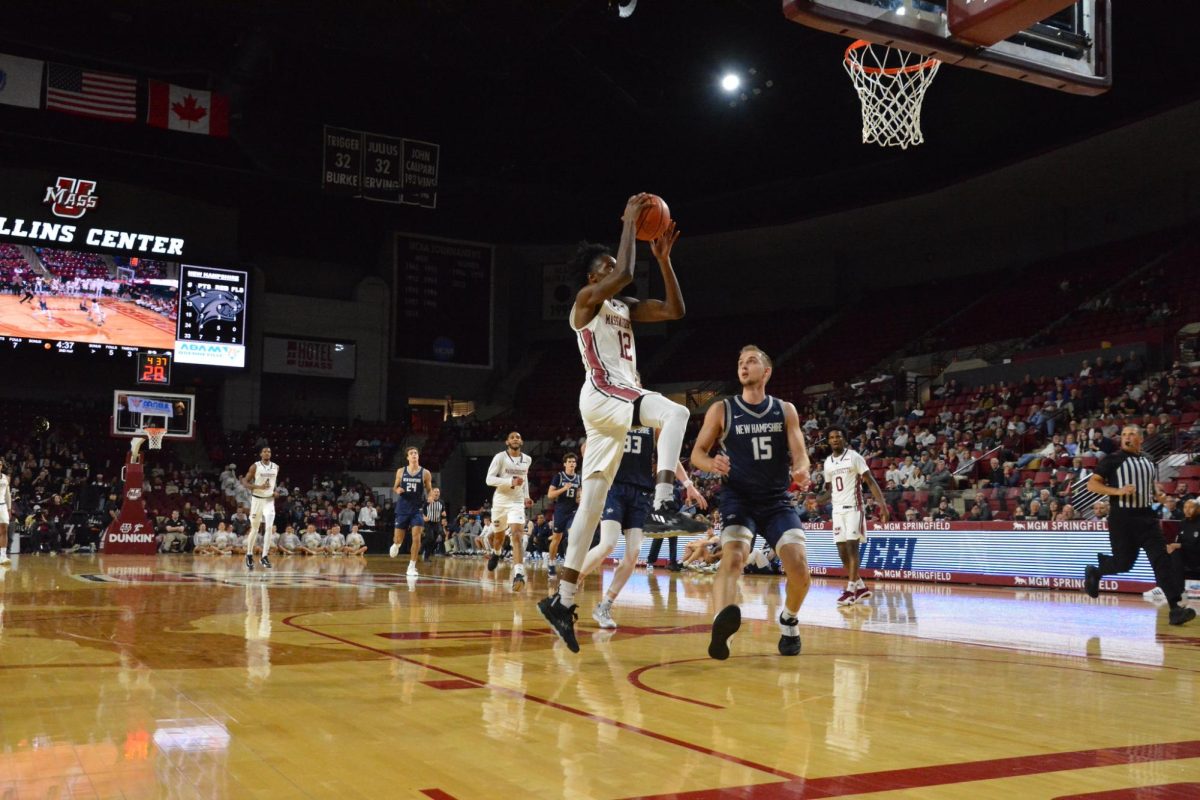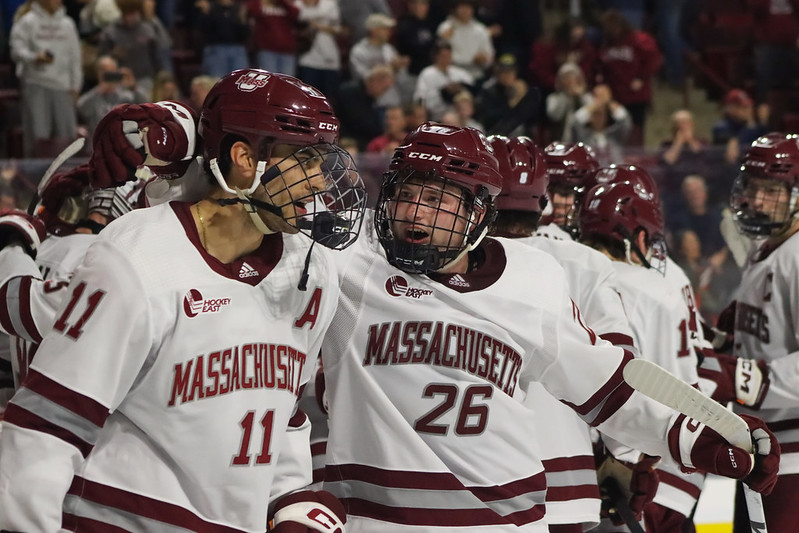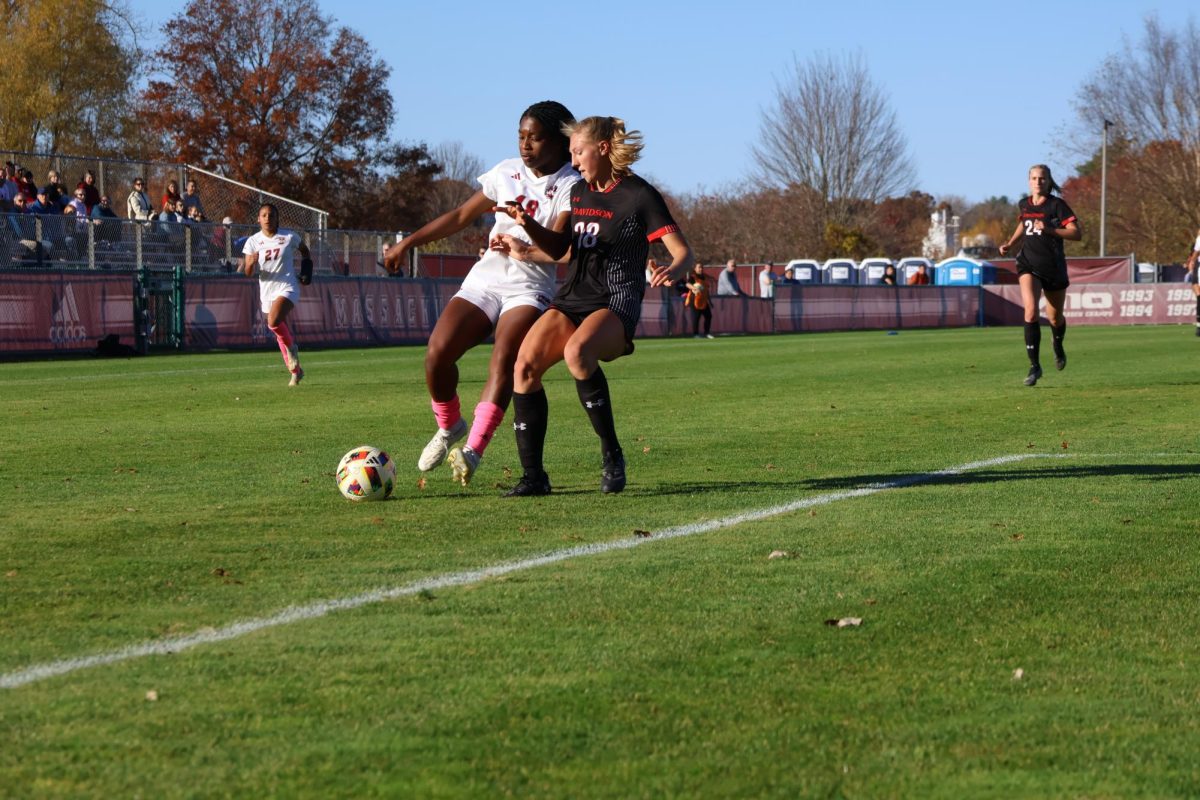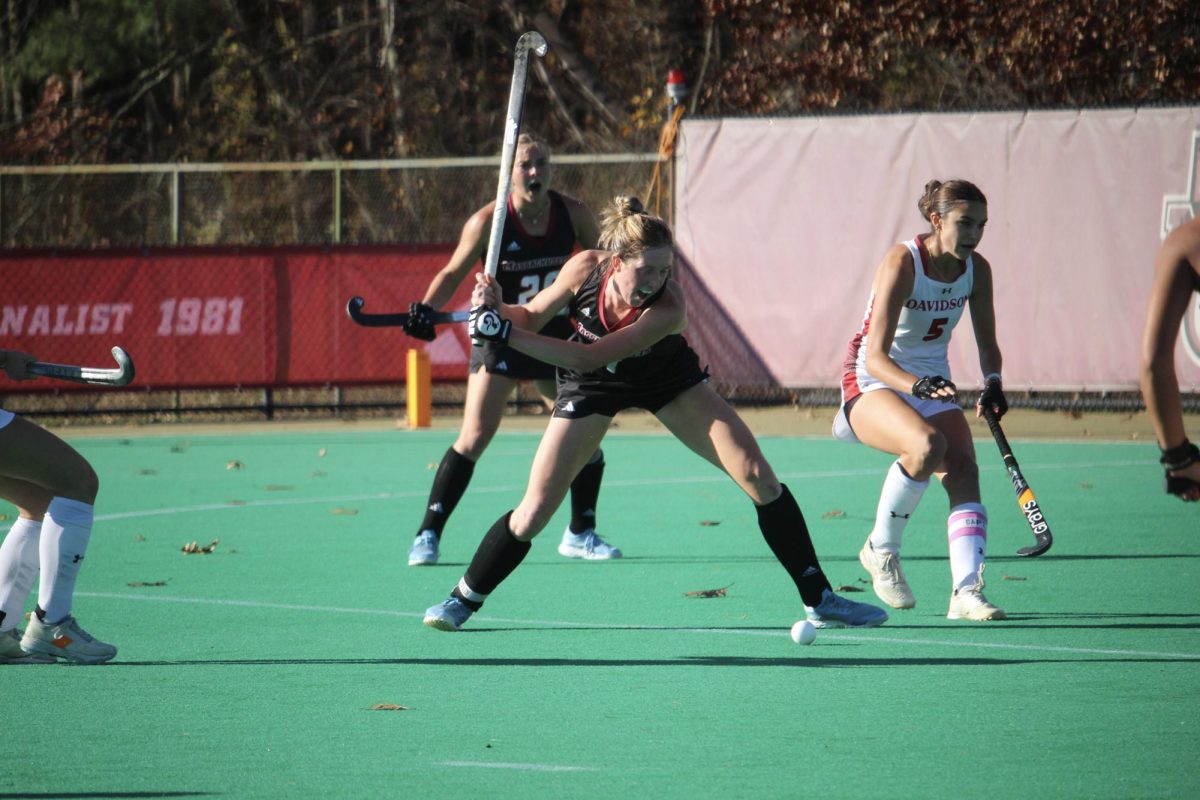University of Massachusetts Amherst interim Chancellor Marcellette Williams and other representatives of the administration met with resident assistants and community development assistants last night to discuss the upcoming vote on unionization.
Williams opened the meeting by thanking the students for attending. She also acknowledged that her intentions might have been misinterpreted when she wrote in a Feb. 14 letter to RAs that she didn’t consider the position a “job.”
“I have since heard from several of you who were offended by that statement. In re-reading my letter, I understand why you reacted that way,” Williams said. “I did not communicate intentions well. What you do is clearly of great importance.
“You make an enormous contribution to the University,” Williams added. “But you do so not just by ‘working,’ but also by serving as a leader among your peers, as an advisor to your peers, and as a role model for other students.”
Vice Chancellor of Student Affairs Javier Cevallos also spoke about the difficulty and importance of the RA position.
“I have seen first hand what you do. I was there at the Super Bowl night and at Butterfield,” Cevallos said. “I know what its like to be on the front line. I think it’s very important for me to tell you how appreciative we are of what you do.”
The administration feels that with collective bargaining the relationship between the RAs and CDAs would go from collegiate to adversarial. With collective bargaining, the single room RAs receive, as well as other benefits and stipends would be completely open to negotiation with no protections.
Cristal Cruz, a sophomore Journalism student and RA asked what protections exist under the current relationship between the RAs and Housing.
“It is mutually beneficial for us to offer that to our staff,” Gilbert answered. “The Housing system and Residence Life is a strong program, but it is not a perfect one.”
Chris Fierro, a Social Thought and Political Economy senior invited the Chancellor and the other administrators to a “public debate” this Sunday in the Campus Center.
The administrators declined to promise their attendance, which angered some in attendance.
“We tried talking to you before, why should we believe you will listen to it now?” Dave Synnott, a junior Arts and Sciences student and RA asked.
Students also raised concerns that the administration was telling RAs reasons not to vote for the union at mandatory staff meetings.
“This is a campaign. The union has every right to do what ever they can to get their message out,” Cevallos said. “We have every right to do whatever is necessary to get our message out.”
One Residence Director rose and said she didn’t feel right telling her RAs how to vote.
“I know I have a lot of influence over my RAs,” she said. “I tell them to make your best decision for yourselves.”
Synnott claimed the University had spent “hundreds of thousands of dollars” in legal fees fighting the union movement.
Cevallos laughed at this, saying he wished he had the money to spend.
“We have not spent a penny from the Housing budget on lawyers,” Cevallos said. “The University has lawyers of its own.”
United Auto Workers Local 2322 is helping organize the unionization effort. Chapter President James Shaw said that despite what was being said by the administration, the union sentiment is strong.
“I think that what I heard tonight came most loudly and most clearly from the RAs themselves. There are promises being made and threats being made and nobody’s falling for them,” Shaw said. “People are saying ‘hey we want a union, it’s our choice to have a union,’ it was the University that tried to block the RAs from having that choice with the legal case they presented. The RAs are going to make that choice and it’s very clear to me tonight that they are resolute, they’re strong, they’re gonna make that decision and make the good decision in favor of the union.”
The unionization vote will take place on March 5, in Campus Center room 1001. If ratified it will be the first undergraduate union in the nation.






